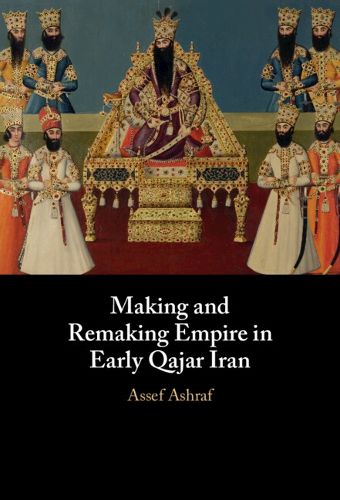Readings Newsletter
Become a Readings Member to make your shopping experience even easier.
Sign in or sign up for free!
You’re not far away from qualifying for FREE standard shipping within Australia
You’ve qualified for FREE standard shipping within Australia
The cart is loading…






In 1722, the Safavid empire collapsed. An empire that ruled for over two centuries, in its heyday it spanned parts of Central Asia, the Caucasus, and present-day Iran. The decades following its fall were ones of unrest and discord, and it was only with the rise of the Qajars in the 1780s that a level of stability was restored. Assef Ashraf devotes this book to an analysis of the making of the Qajar empire. It adopts a socially-oriented approach to political history - an approach that examines the discourse and political practices, and the centers and peripheries, of empire. Each chapter focuses on a particular practice that was at the heart of Qajar governance - land administration, gift giving, marriage, political correspondence, provincial diplomacy, and territorial conquest and tribal relations. By situating the formation of Qajar Iran in its early nineteenth-century context, Ashraf highlights the overarching themes of transition and change.
$9.00 standard shipping within Australia
FREE standard shipping within Australia for orders over $100.00
Express & International shipping calculated at checkout
In 1722, the Safavid empire collapsed. An empire that ruled for over two centuries, in its heyday it spanned parts of Central Asia, the Caucasus, and present-day Iran. The decades following its fall were ones of unrest and discord, and it was only with the rise of the Qajars in the 1780s that a level of stability was restored. Assef Ashraf devotes this book to an analysis of the making of the Qajar empire. It adopts a socially-oriented approach to political history - an approach that examines the discourse and political practices, and the centers and peripheries, of empire. Each chapter focuses on a particular practice that was at the heart of Qajar governance - land administration, gift giving, marriage, political correspondence, provincial diplomacy, and territorial conquest and tribal relations. By situating the formation of Qajar Iran in its early nineteenth-century context, Ashraf highlights the overarching themes of transition and change.